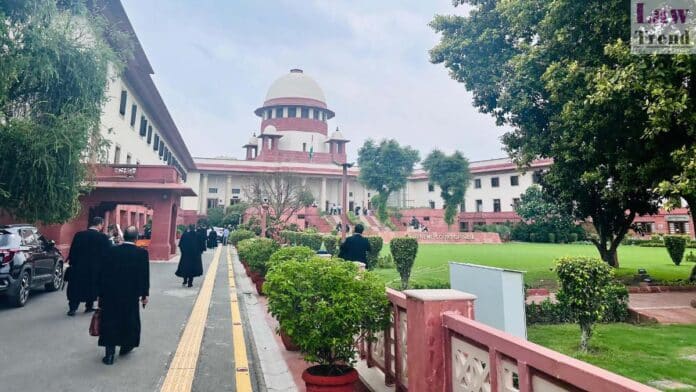New Delhi: The Centre, on the third day of hearings before a Supreme Court Constitution Bench, strongly defended the discretionary powers of Governors, arguing that imposing fixed timelines for them to act on state bills would diminish the constitutional authority of the office. The five-judge bench, headed by Chief Justice of India B.R. Gavai, is hearing a Presidential Reference on whether such timelines can be set for Governors and the President when dealing with bills passed by state legislatures.
Solicitor General Tushar Mehta, representing the Union government, contended that the Governor holds a unique, sui generis position and is not merely a “showpiece.” He cited extensive Constituent Assembly debates to argue that the framers of the Constitution intended for the Governor to have a guiding role, acting as a crucial link between the Centre and the states.
Background of the Hearing
The matter reached the Supreme Court through a Presidential Reference under Article 143 of the Constitution, which allows the President to seek the apex court’s opinion on a question of law. The reference was made after the Supreme Court’s intervention in a case filed by the Tamil Nadu government, which challenged its Governor’s significant delay in clearing re-passed bills. The court had noted the situation as “egregious,” questioning the delay in assenting to bills, some of which had been pending since 2020.
Centre’s Arguments
Appearing for the Centre, Solicitor General Tushar Mehta built his case on the special status of the Governor’s office. He argued that under Article 168, the Governor is an “integral part of the State Legislature,” a dual role that transcends the typical executive-legislative divide. He asserted that the Governor must act as a “statesman,” detached from political partisanship.
Quoting Constituent Assembly member Mahavir Tyagi, Mr. Mehta stated, “We have to keep the State linked together and the Governor is the agent, or rather, he is the agency which will press for and guard the Central policy.” He further cited Tyagi’s view that “democracy must have its way. But do not let it degenerate into chaos,” positioning the Governor as a check against such potential chaos.
Mr. Mehta also quoted another member, Pandit Thakur Das Bhargava, who said, “It is wrong to say that the Governor shall be a dummy or an automaton… Governor shall be a guide, philosopher and friend of the Ministry as well as the people in general.”
The Solicitor General listed specific instances where a Governor can exercise discretion, including:
- When the Constitution expressly provides for it.
- When summoning or proroguing the House if the Chief Minister appears to have lost the majority.
- In matters where the Council of Ministers’ advice may be biased, such as granting sanction for their own prosecution.
Court’s Observations
While the day’s proceedings were dominated by the Centre’s arguments, the Bench has previously posed sharp questions. On Wednesday, Chief Justice Gavai had asked the Centre if elected state governments were to be left at the “mercy of the whims and fancies of Governors.” He questioned if Governors were being given “total powers to sit in appeal over the elected representatives.”
During Thursday’s hearing, the CJI also remarked on the judiciary’s role, stating he has “always been an advocate of the principle that judicial activism must not descend to judicial terrorism,” in a comment related to courts encroaching on executive and legislative domains.
The hearing remains ongoing, with the Supreme Court set to continue hearing arguments before providing its opinion to the President.




